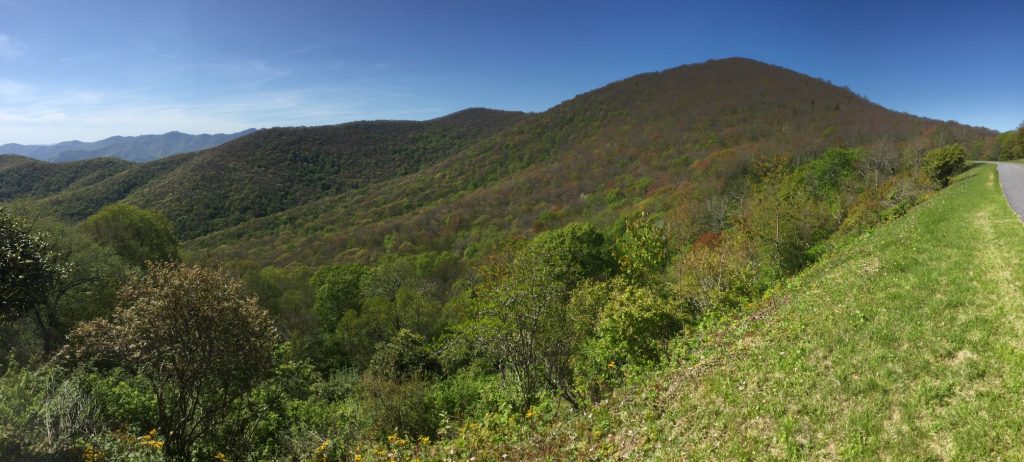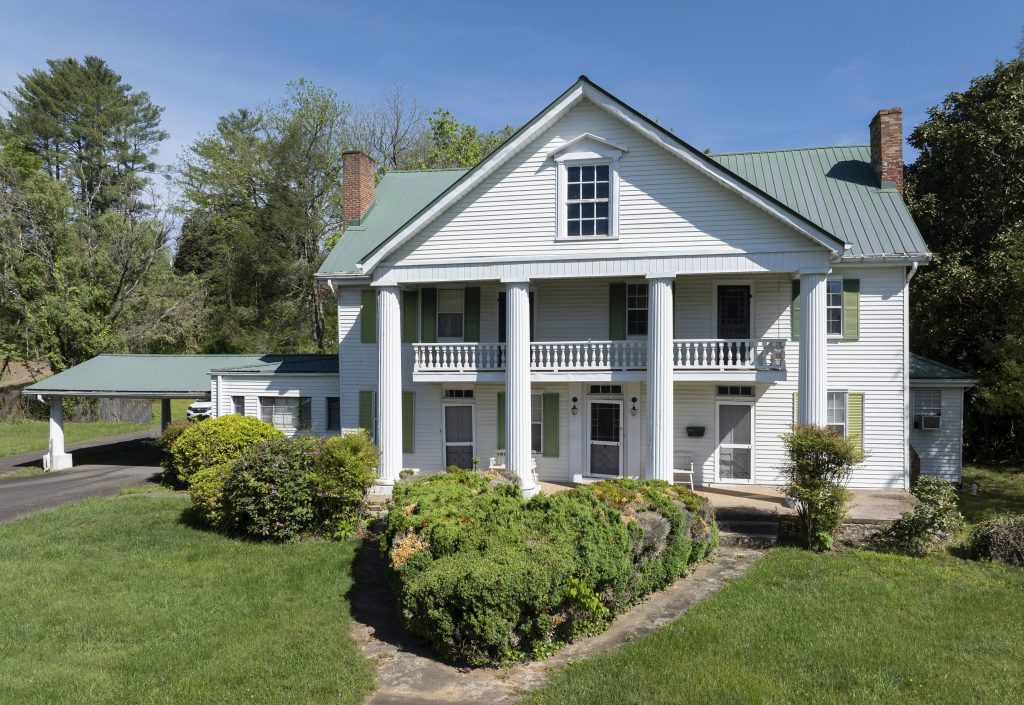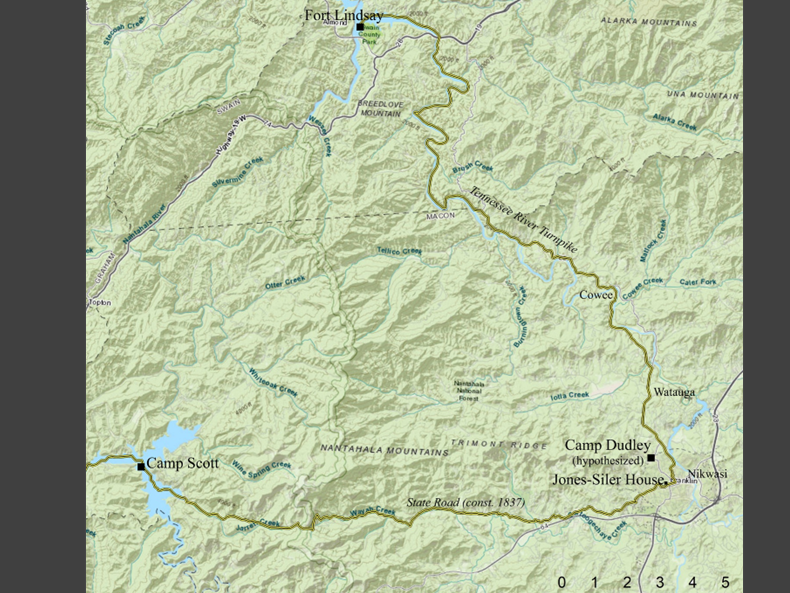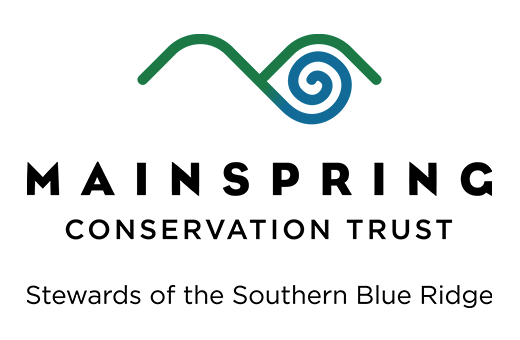JACKSON COUNTY, NORTH CAROLINA (Jan. 23 2025) — The Conservation Fund announced today that a critical property in the Great Balsam Mountains of western North Carolina is protected as forest and natural land. The approximately 3,850-acre Balsam Gap property connects to 770,000 acres of previously conserved lands, and continues a 25-year legacy of federal, state and private investment to protect over 12,000 acres of working forest, wildlife habitat, watersheds and recreation land in the region.

The area around Balsam Gap is especially important in the long-term effort by The Conservation Fund and other organizations to protect land bordering the Blue Ridge Parkway, one of the National Park Service’s most visited sites attracting millions of visitors each year. The property shares almost four miles of boundary with the Blue Ridge Parkway and protects spectacular views along a 17-mile stretch of the Parkway, including five scenic overlooks.
“Our efforts to protect this property go back 25 years,” said Michael Leonard, a senior advisor and former TCF Board Chair who has played a central role in several landmark conservation projects in North Carolina. “While our initial efforts were unsuccessful and we feared we might have lost our chance for good, we kept at it because the proximity to the Blue Ridge Parkway made conserving this land vital. North Carolina is a special place, and the things that make it special for visitors and locals alike need to be protected. I’m thrilled that the years of perseverance by our dedicated staff and our partners, including private donors such as Fred and Alice Stanback and Brad and Shelli Stanback, brought about this rare second chance and a big conservation success.”
In addition to preserving the natural beauty of the Blue Ridge Parkway, conserving this property will add to the wealth of recreation opportunities in the area, support local tourism and timber jobs, sustain vital habitat and migration corridors for wildlife, and protect water quality from multiple headwaters. Nature-based recreation and tourism are significant drivers of the local economy, supporting thousands of jobs and generating almost $400 million in annual revenue for Jackson and Haywood counties alone. Taking steps to support and sustain that economic activity is especially important following the devastation Hurricane Helene brought to the region.
The property is now protected by two easements. Mainspring Conservation Trust helped make this conservation success possible by agreeing to hold and steward a 1,147-acre easement that expands an existing no-cut buffer adjacent to the Blue Ridge Parkway. A second 2,703-acre working forest easement, held by the State of North Carolina, will be stewarded by the North Carolina Forest Service. The properties will become a key portion of 55,000 acres of protected land in the Great Balsam Mountains.
“This project represents an incredible opportunity to protect a landscape rich in conservation values,” said Mainspring Executive Director Jordan Smith. “Its proximity to the Parkway and adjacency to already conserved lands made the decision to accept this conservation easement a clear choice for Mainspring’s staff and board. We are deeply grateful to The Conservation Fund for their collaboration and, most importantly, to the landowners for their generous contribution to conservation. Their gift will have a lasting impact on the region and North Carolina for generations to come.”
Members of North Carolina’s U.S. Congressional delegation — including U.S. Senator Thom Tillis and U.S. Representative Chuck Edwards, whose district includes Balsam Gap — expressed support for the project.
“North Carolina is home to some of our country’s most treasured natural resources,” said Senator Tillis. “Today’s announcement is an important milestone to protect those resources, including the Blue Ridge Parkway, for future generations to enjoy. I am proud to see this investment from the Great American Outdoors Act in North Carolina, and I thank The Conservation Fund and the Stanback family for their decades of work to bring this project to fruition.”
“It is important that we preserve our mountains for generations of Americans to enjoy, and I am glad to hear that The Conservation Fund has received a federal award for its project to protect the Great Balsam Mountains from development,” said Representative Edwards. “These funds invested in Western North Carolina will not only protect the natural beauty of the Blue Ridge Parkway, but it will also help spur recreation and tourism which are significant drivers of our local economy especially after the devastation of Hurricane Helene.”
“This conservation easement is a testament to the North Carolina Forest Service’s outstanding conservation partnerships,” said Jonathan Murray, the North Carolina Forest Service’s Forest Legacy Coordinator. “Thank you to the Stanback family, The Conservation Fund, the United States Forest Service Forest Legacy Program, Mainspring Conservation Trust, the Blue Ridge Parkway Foundation, and private donors for your patience and persistence to conserving 2,703 acres of privately owned working forest. The working forest conservation easement will provide timber resources for the local timber economy, protect vital trout streams along Dark Ridge Creek and forever protect the natural beauty and serenity along this section of the Blue Ridge Parkway.”
Funding for this project comes the U.S. Forest Service Forest Legacy Program, Mainspring Conservation Trust, the Blue Ridge Parkway Foundation and private donors. This project builds upon a 2002 U.S. Forest Legacy Program project.






